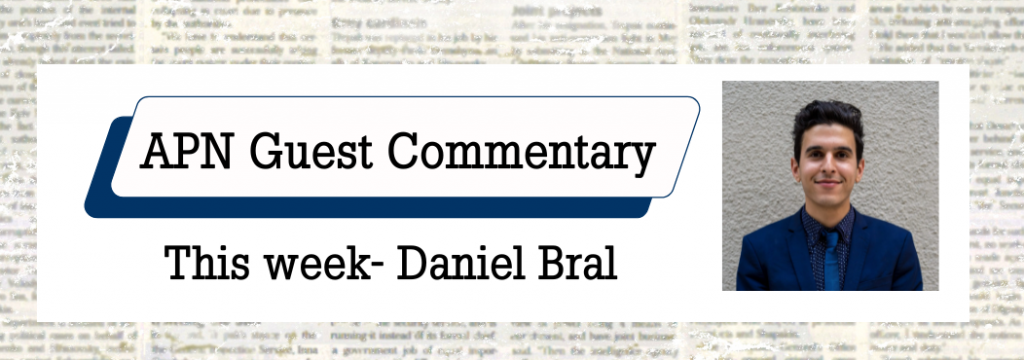The sadness transitions into anger. Anger, first and foremost, at Hamas. Then, anger with the man whose chief
priority is—should be—protecting his people, whatever
the (personal or political) cost. They should never have been taken away to begin with. But they should also
be alive, with their families, at home.
Their murders felt like a tipping point in a war well-past its expiration date. “Bring Them Home” did not
mean in black body bags.
The Histadrut called for a general strike to ratchet up the temperature under Netanyahu’s already scorching hot seat to strike a deal.
As if it were divine destiny, the general labor strike in Israel was going to coincide with Labor Day in America. Upon hearing the announcement of the strike, I tweeted, “Tomorrow is also Labor Day in America. Jewish institutions across the country should escalate their calls to Bring Them Home by standing in solidarity with Israelis through a statement of unity and staging their own parallel ‘strike.’ That’s what pro-Israel solidarity looks like.”
I was under zero illusion that legacy Jewish organizations were going to do such a thing. But I could. Despite the obvious power imbalance, I didn’t want to cast aspersions if all I was going to do is bitch about it. Though I reside in the privileged confines of peace, I didn’t want Israelis and Palestinians to feel alone in this fight.
I decided to organize my own solidarity strike. With less than a full day to plan.
Naturally, the first person I called was my Palestinian friend, Adnan. You see, as the grandson of a man who
was once the sole Jewish member of parliament in pre-revolution Iran, serving as the representative to the entire
Jewish community, I take coexistence personally, even though I am not naive about its challenges.
Adnan was born in Jerusalem and moved to Los Angeles with his Israeli-American wife to unite people through tech and dialogue. I told him about my idea to stage what I called a “solidarity strike” on Labor Day outside the Israeli consulate in Los Angeles. The layers of symbolism speak for themselves.
He was in. So much for ‘we have no partners in peace.’ Like other false binary-rejectors, Adnan personally
understands that the fates of Israelis and Palestinians are inextricably linked; there is no salvation
for one without salvation for the other. The strike’s demand for a deal would be
universal.
After a few phone calls, and within a few hours, representatives from UnXeptable LA (my dear friend Yona and others), We Are All Hostages, and LA Supporters of Standing Together hopped on Zoom and quickly coalesced around the plan: “Solidarity Strike,” calling for a deal, on Labor Day, outside the consulate. I reached out to my colleagues at J Street, and heard from my friend, Hadar Susskind. J Street and Americans for Peace Now tagged on to co-sponsor our strike.
The next day, Labor Day, came. Over 100 people showed up to the front steps of the Israeli consulate to join
our strike. So too did local news stations.
Rabbi Lana Zilberman-Soloway, UCLA Professor David Myers, Luc Bernard (We Are All Hostages), Rabbi Sharon Brous, and myself gave speeches. I read aloud an article I wrote upon hearing of Hersh’s death, “What Hersh Symbolized,” eulogizing him and what he represented.
The strike was a moving show of solidarity with the hundreds of thousands of protesters in Israel. There was
sadness and anger, but we also felt enveloped by hope and commitment. A commitment to ensure the six murdered
hostages’ lives were not another statistic in the Israeli-Palestinian casualty count. A commitment to continue the
work, brick by brick, to end the cycle of stolen lives—Israeli and Palestinian—and to bring peace to the people of
the region.
As I said to close my speech, “[Hersh’s] eyes provided the roadmap to that light at the end of the tunnel. Though he won’t physically be here to lead us to that light, his life commands us to follow in his footsteps and pursue it.”
That’s what “pro-Israel” solidarity looks like. Solidarity is not choosing the path of least resistance, hoping that better angels will prevail and inconvenient truths can be avoided. Solidarity is not denialism, clinging on to a romanticized image of Israel that currently doesn’t exist. Solidarity is not a reflexive insistence on this idea of Israeli exceptionalism, an impossible standard of perfection that naturally sets Israel up for failure.
Solidarity is, as I’ve said, defending Israel against its enemies, but also acting upon the realization that the far-reaching tentacles of occupation are rapidly eroding Israel’s moral fabric, perpetuating the cycle of violence, and deluding us into believing that it’s possible for the state of Israel to remain Jewish and democratic without the establishment of the state of Palestine. Solidarity is when the foot soldiers of the pro-Israel community rise up to bring about change.
Daniel Bral is a writer on Israel, the conflict, and coexistence. Follow him at @danielbral.
